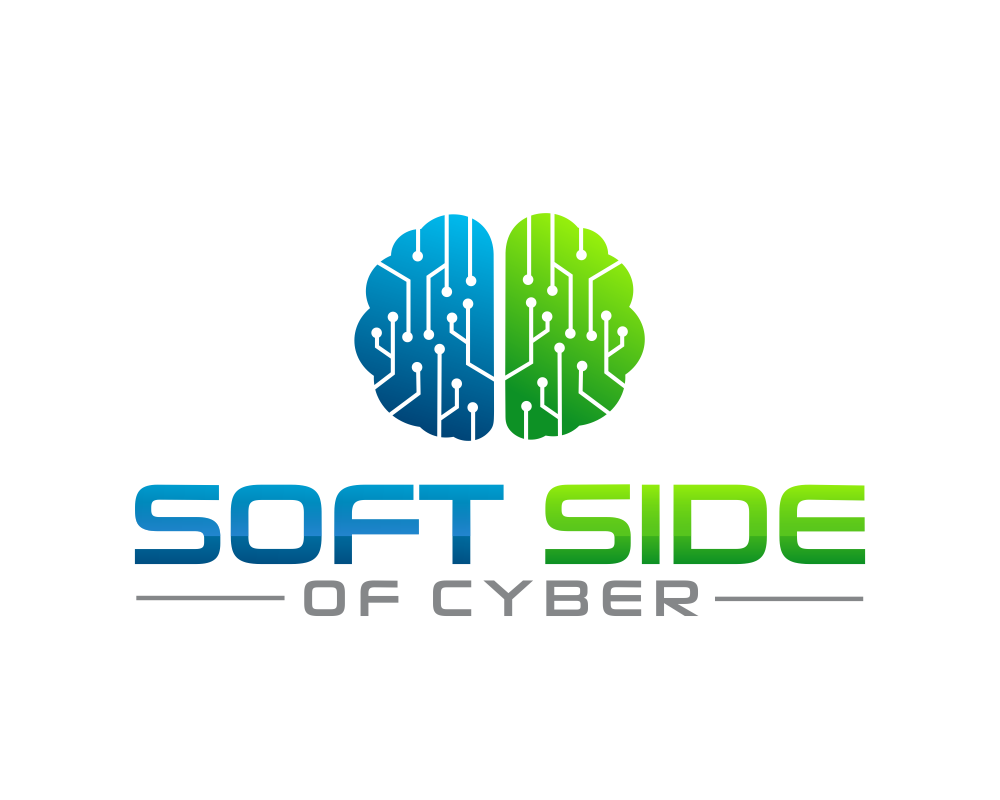
Mastering Essential Soft Skills for Cybersecurity Professionals: A Guide to Implementing the CISO's Strategy
The Soft Side of Cyber Podcast
We launched our first podcast episode on youtube, iTunes, Spotify, and Google Play. Subscribe and give it a listen today!
Listen on youtubeTechnical expertise is super important in our field. But here's the thing: soft skills are just as crucial when it comes to effectively implementing the boss's strategy. Of course, you might be a whiz at identifying vulnerabilities and responding to threats. Still, without soft skills, you may be unable to maximize your impact on the team, move the needle, and help keep your organization safe.
That's where the Soft Side of Cyber Framework comes in. Our handy guide breaks down the critical soft skills you need to thrive in cybersecurity. In this article, we will explore how you can align your skillset with the framework and make a difference in implementing the CISO's strategy.
Time Management
In the fast-paced world of cybersecurity, effective time management and prioritization are critical to ensuring the most pressing threats and vulnerabilities are addressed promptly. Not to mention, there's always more to do, more demands, and another "critical" thing to deal with. By balancing competing priorities and deadlines, you can maximize your productivity and limited resources.
Effective time management strategies, like setting clear goals, breaking tasks into manageable chunks, and eliminating distractions, can help you stay focused and organized. Time or day blocking, where you schedule out chunks of time to focus intensely on a particular thing, is also a powerful technique for getting things done.
By sharpening your time management and personal organization skills, you'll contribute more effectively to implementing the CISO's strategy and help your organization stay one step ahead of potential threats.
Managing your time and being more efficient is one thing, but you must spend that time on the right things. That's where critical thinking can help.
Critical Thinking
Critical thinking is a must-have skill for cybersecurity professionals. It enables you to analyze complex situations, identify potential vulnerabilities, and make well-informed decisions to protect your organization. By honing your critical thinking skills, you'll become a more effective problem solver and contribute to successfully implementing the CISO's strategy.
To sharpen your critical thinking abilities, practice breaking down complex issues into manageable components, question assumptions, and consider multiple perspectives when evaluating potential solutions. Additionally, consciously self-reflect and seek feedback to continuously improve your decision-making process.
Circling back and evaluating your decisions after a certain time to determine if your original assessment was correct and why or why not can help you improve. That process will help you make necessary changes, leading to adaptability.
Adaptability
Adaptability is essential with the amount of change we deal with in this field.
Cybersecurity professionals must be able to quickly adjust their tactics, techniques, and priorities to protect their organization from new risks and vulnerabilities. The latest CVE or zero-day drops, you have to change. Senior leadership has a change of heart about something, and you might need to change. The driver for a change can come from anywhere.
Being adaptable means staying informed about the latest developments and being ready to pivot your approach as needed. This agility allows you to address evolving security challenges and align your efforts with the CISO's strategic objectives.
To enhance your adaptability, embrace a continuous learning mindset and seek opportunities to expand your knowledge and skill set. Stay up-to-date with industry news, attend conferences, and participate in professional training and certification programs. Doing so will prepare you to adjust your strategies and tactics in response to the ever-changing cybersecurity landscape.
Creativity
Creativity is essential for developing innovative solutions to the dynamic set of problems we face in the field of cybersecurity and keeping pace with evolving threats. Embracing creativity enables you to think outside the box, explore new approaches, and devise unique strategies that align with the CISO's vision and objectives. It's easy to slip into a mindset or cultural trope about not being creative because we work in a technical field, but you have to work against that.
By fostering a creative mindset, you can tap into fresh ideas and perspectives to help your organization stay one step ahead of the risks it faces. Encourage a culture that values creative thinking and supports exploring unconventional ideas. Try things that might fail. This environment will empower your team to challenge assumptions, explore new techniques, and develop more effective cybersecurity strategies per the CISO's plan.
As you implement the CISO's strategy, use your creativity to identify potential gaps in your organization's security posture, develop tailored solutions to address these vulnerabilities, and communicate the value of innovative security initiatives to stakeholders. By leveraging your creative problem-solving skills, you can contribute to a more robust and effective cybersecurity program that aligns with the CISO's vision and bolsters your organization's defenses.
Communication
Communication is essential in almost any field, and cybersecurity is no exception. For us, explaining complex concepts to different audiences is crucial. Therefore, you must adjust your communication style to suit technical and non-technical folks. By keeping it simple, clear, and jargon-free, you'll help others understand the importance of your work and its impact on the organization.
Active listening and empathy are also vital ingredients in effective communication. You build trust and rapport when you actively engage with your audience and show genuine interest in their concerns. Plus, it'll help you spot and address potential security risks more efficiently.
To improve your communication skills, consider joining training programs and workshops or seeking mentorship from experienced professionals. Practice makes perfect, so don't forget to put your communication skills to the test in various settings like team meetings, presentations, and written reports.
Catching up on last week? Check out this reaction video on effective writing skills in cyber.
Teamwork
In the wild world of cybersecurity, threats are constantly evolving and getting trickier. That's why no one person can tackle every challenge alone. Collaboration and teamwork are the secrets to creating effective defense strategies and addressing vulnerabilities. As cybersecurity professionals, we need to work together within our team and across different departments to share knowledge and develop comprehensive solutions.
As you strive to put the CISO's strategy into action, building strong working relationships within your team and across different departments is essential. By fostering a culture of open communication, trust, and collaboration, you can create a united front against cyber threats and ensure that your organization's security measures align with the CISO's vision.
By prioritizing teamwork and collaboration, you'll be better equipped to navigate the complexities of the cybersecurity field, address emerging threats, and effectively contribute to successfully implementing the CISO's strategy.
Leadership
Leadership isn't just for the top dogs; it's a critical soft skill for all cybersecurity professionals, no matter where they stand in the organization. By showing off your leadership qualities, you'll inspire trust, confidence, and respect among your colleagues and stakeholders, ultimately contributing to a more effective cybersecurity strategy.
Developing a reputation for expertise and reliability is essential to establishing credibility. By consistently delivering high-quality work and showing your commitment to excellence, you'll position yourself as your organization's trusted and valued member.
Don't forget to learn and develop professionally to cultivate your leadership skills continuously. Sit for certifications, attend conferences, and seek opportunities to learn from industry leaders. In addition, you can better guide your organization's cybersecurity efforts by staying current with the latest trends and best practices.
Persuasion
In cybersecurity, persuading decision-makers and stakeholders to invest in and prioritize security efforts is critical to successfully implementing your strategy. To do this effectively, you'll need to hone your persuasion skills, enabling you to convey the importance and value of cybersecurity initiatives compellingly.
By crafting engaging narratives and presenting data-driven arguments, you'll be able to showcase the need for investment in cybersecurity programs and infrastructure that aligns with the CISO's vision. Plus, you'll be able to influence others to adopt a proactive approach to security, ultimately creating a more secure organization that successfully executes the CISO's plan.
By refining your persuasion skills and using them to advocate for the CISO's strategy, you'll help secure the necessary resources, support, and buy-in to create a more resilient and secure organization.
Closing Thoughts
Soft skills are essential for cybersecurity staff like you. By honing these skills, you'll be way more effective at implementing the CISO's strategy and contributing to your organization's security and success. The Soft Side of Cyber Framework is your go-to guide for leveling up your personal and professional growth in the cybersecurity field.
Just think about the impact you can have by improving your soft skills. Not only will you boost your career prospects, but you'll also play a huge role in strengthening your organization's security posture. So, embrace that ongoing commitment to personal and professional growth in cybersecurity, and become the driving force for positive change your organization needs!


